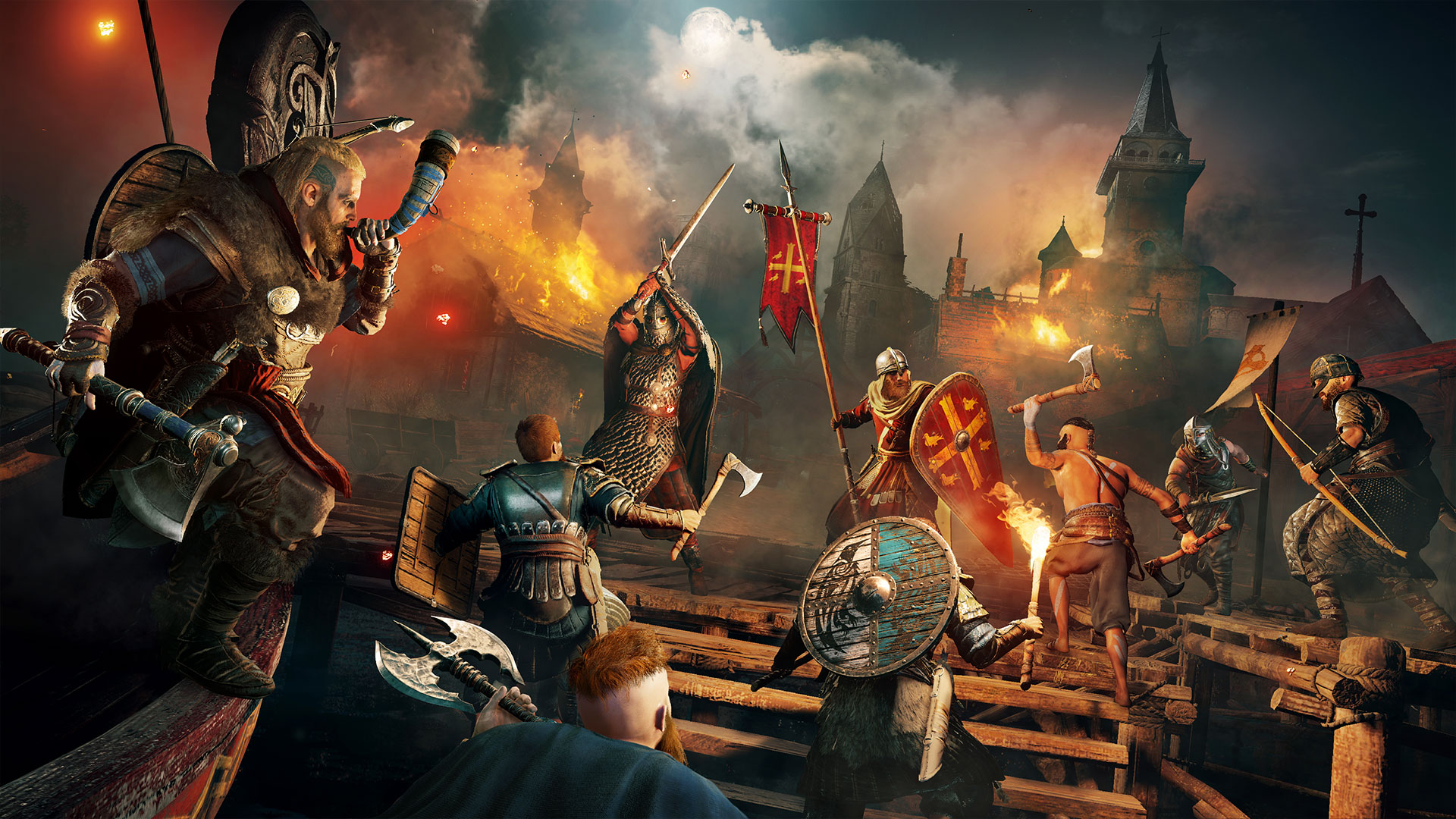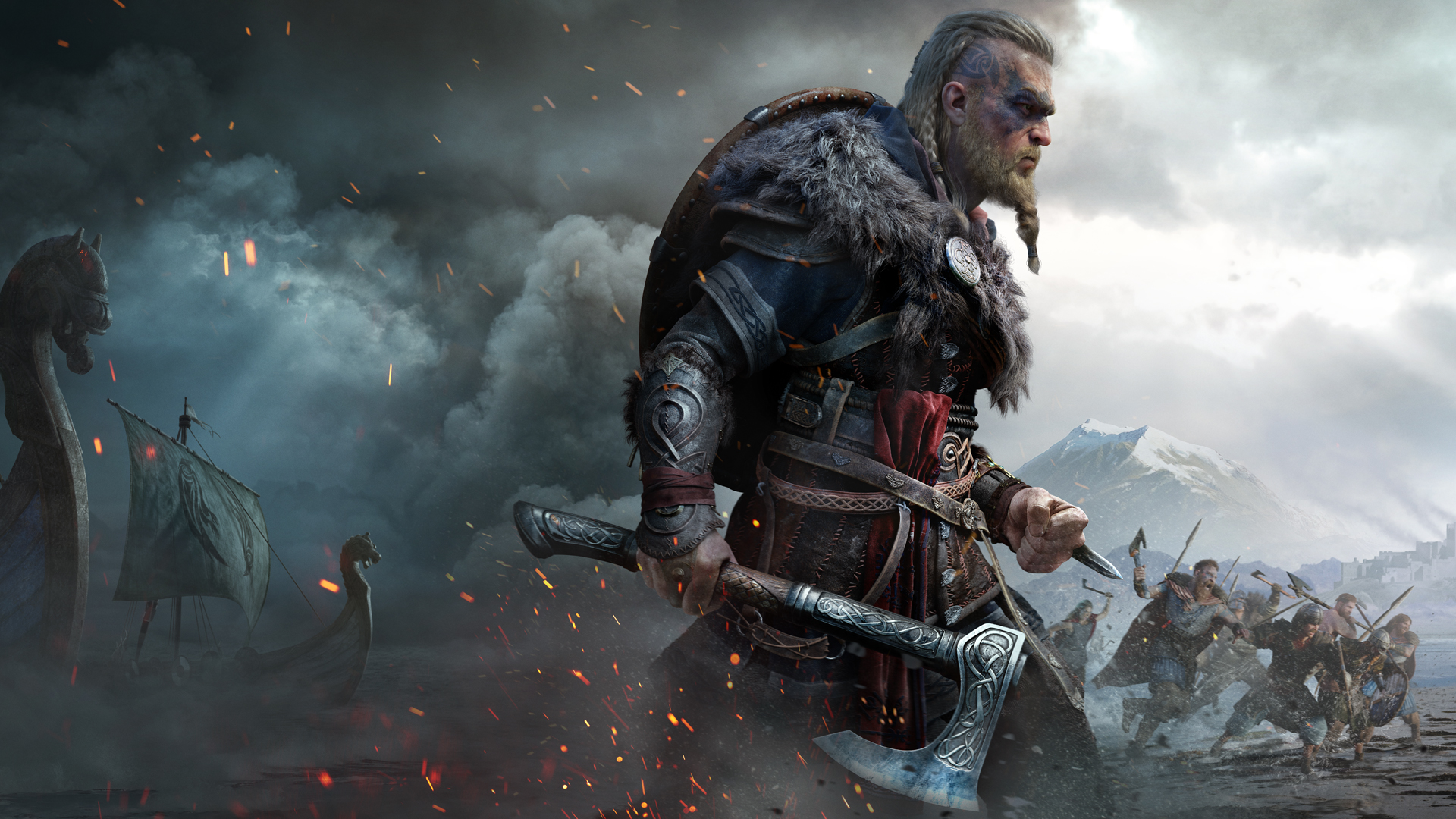
We're heading into uncharted territory now. Of all the periods in history that Assassin's Creed has sought to play in, this is perhaps the most open to interpretation. Set against a backdrop of England's Dark Ages, Assassin's Creed Valhalla is aiming to draw us into an age of warring kingdoms and Viking conquest with what sounds to be one of the most significant shifts to the series since it first began to embrace the RPG back in 2017.
In the leather-bound boots of Eivor, Ubisoft Montreal is going to give us the space to explore the culture and brutality that helped to define what we know of ninth-century England. Assassin's Creed Valhalla will push you to establish a new home and defend it with your life, set shortly after your clan of Norsemen traverse the treacherous North Sea to set up camp on the shores of a land under the shadow of Saxon rule. From here, Ubisoft is promising that we will be able to shape the world as we see fit.
"We can’t wait for players to experience the incredible Viking journey ahead of them," Ashraf Ismail, creative director of Assassin’s Creed Valhalla, noted in an official statement. "Being in Eivor’s boots as both a Viking raider and a clan leader, players will face the conflicts of establishing a new home while in the midst of a power struggle for control of England."
As far as promises go, it's an interesting one. Ubisoft Montreal appears to be teasing that Assassin’s Creed Valhalla will be a game as interested in balancing power as it is letting you spill blood. From brokering uneasy allegiances to the decisions you make in combat – all of it underpinned by dialogue choices you'll be able to access while on your travels – can reportedly have a lasting effect on the world around you and influence on those that inhabit it.
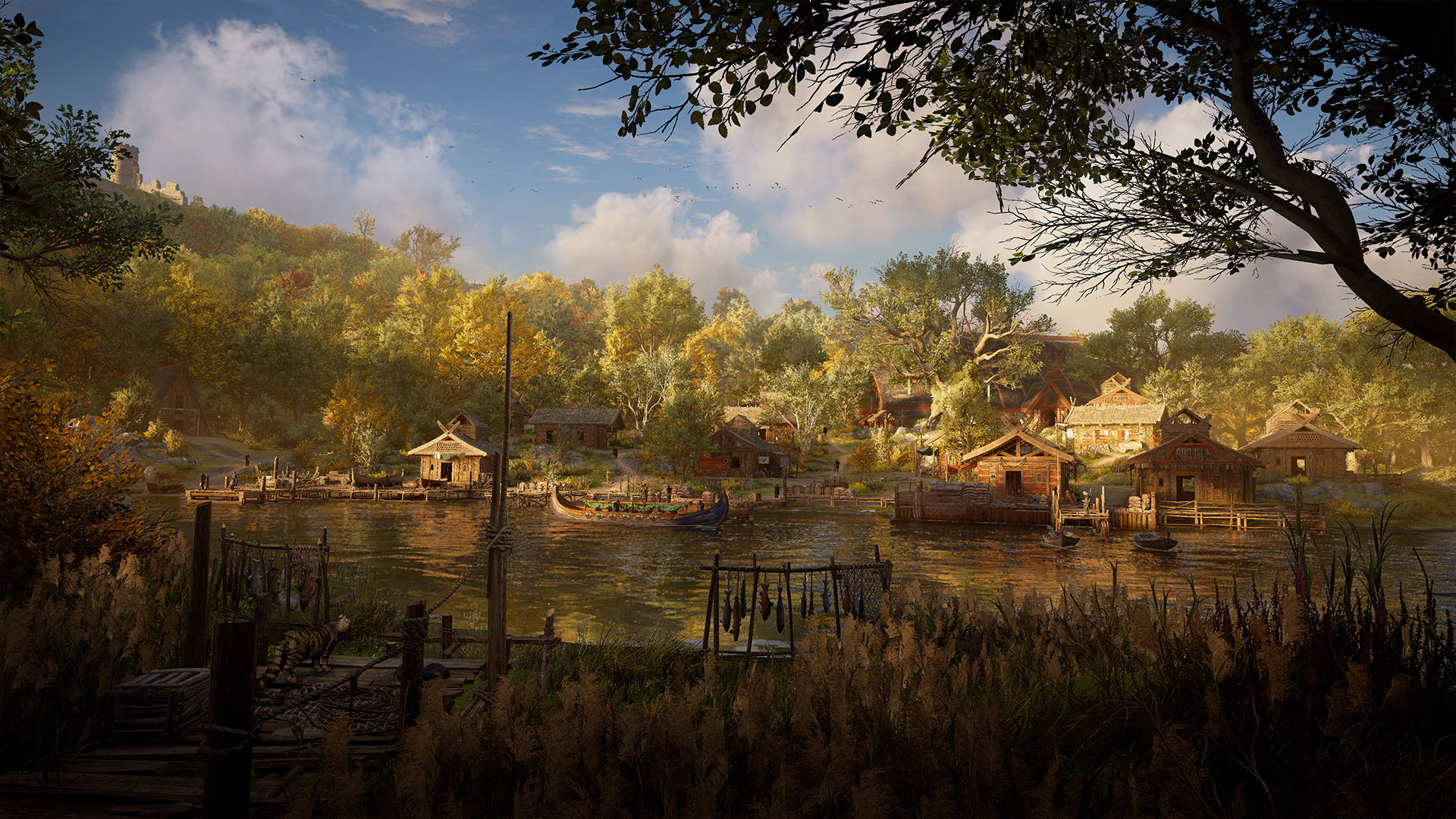
Diplomacy will be key to success, we can surmise, as you work to find a new future for your settlement and the clan that occupies it. You'll be able to construct new structures over time as your power and influence grows – such as a barracks, blacksmiths, and tattoo parlor – and customise them too. It sounds like a space we will return to time and time again, a place to spend time with the clan members and establish plans for the future – more in line with Red Dead Redemption 2's camps than the homestead in Assassin's Creed 3. Viking society was full of fierce warriors, yes, but the people also had a strong sense of community. They found an understanding of the world around them in ceremonies, ritual, and mythology. How acutely Ubisoft is able to capture this spirit will likely define how well this new side to the game lands.
Of course, that's not to say that Assassin's Creed will be laying down its weapons because of this further embrace of the RPG. In fact, Ubisoft has already made a point of confirming that Assassin’s Creed Valhalla will feature a revamped combat system and a greater variety of enemies than we've seen before in the series. That's not only reflective of how comfortable the studio is getting with the technology that helped bring Assassin's Creed Origins and Odyssey to life – not to mention the power of the next-generation systems Valhalla will be arriving on later this year – but of the era the game is set too.
The Vikings are famous for their prowess in combat. Perhaps that's why Ubisoft Montreal is pushing a system that will let us rampage across battlefields, with a more robust dual-wielding system in place, and the ability to dismember and decapitate any who dare step in Eivor’s path. We'll see the Assassin's Creed Valhalla gameplay in action next week and we can only hope that we get our first look at the new raid system, which sees you taking commanding your forces against Saxon strongholds on foot, from the seat of a longboat, and, with the hidden blade making its long-anticipated return, the shadows too.
Sign up to the GamesRadar+ Newsletter
Weekly digests, tales from the communities you love, and more
Embracing change
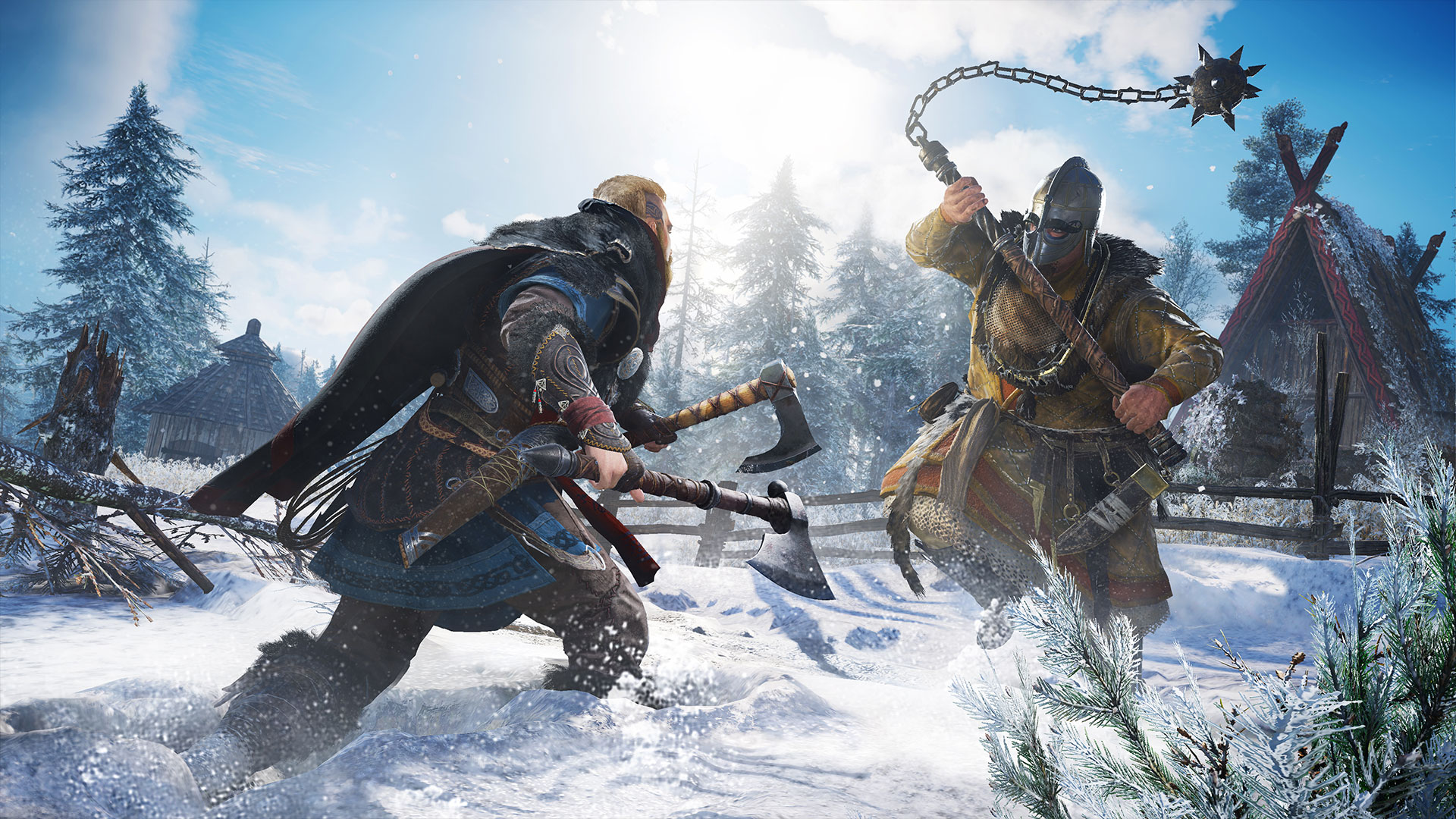
I mentioned right up top that we are heading into uncharted territory. There's a variety of factors behind that. Firstly, if you look at the broad array of information Ubisoft Montreal has released today, it's clear that the studio is looking to strike a cleaner balance between Assassin's Creed's action roots and its new infatuation with RPG systems. It's pushing the latter forward, thankfully, but it's investing more heavily in the former too. Secondly, Ninth Century AD isn't a period of history with all that much documentation. That's strange for a series that prides itself on being the interactive sandbox history never asked for.
"It’s a fascinating time. It’s been called the Dark Ages because we don’t have as much information relative to certain time periods like Ancient Egypt or Greece," Thierry Noël told the Ubi Blog, a historian and inspirational content advisor working with the editorial research unit behind Assassin’s Creed Valhalla. We saw Origins and Odyssey experiment with mythology more heavily than any of its predecessors, and it seems only fair to assume that Valhalla will follow a similar path.
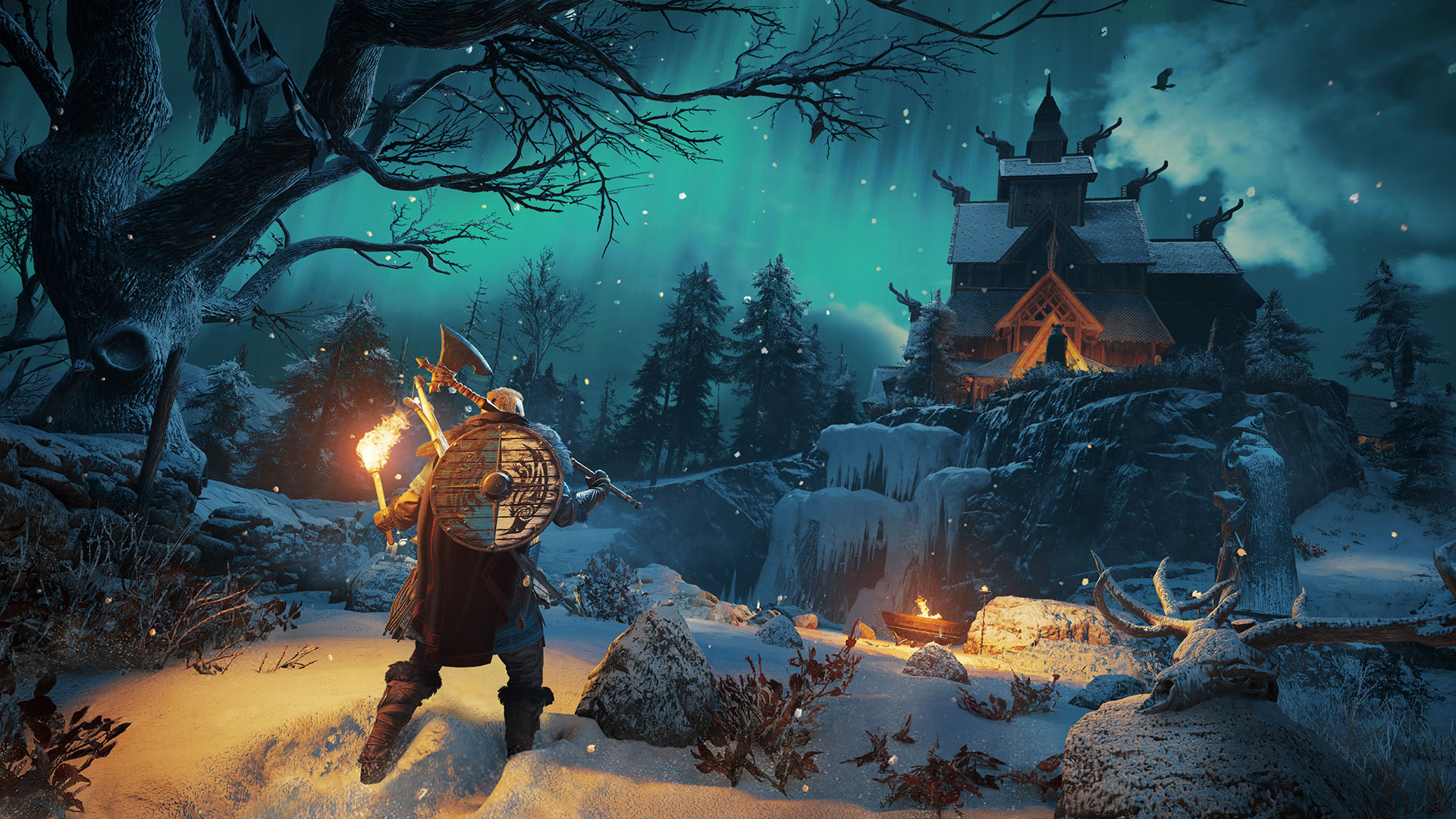
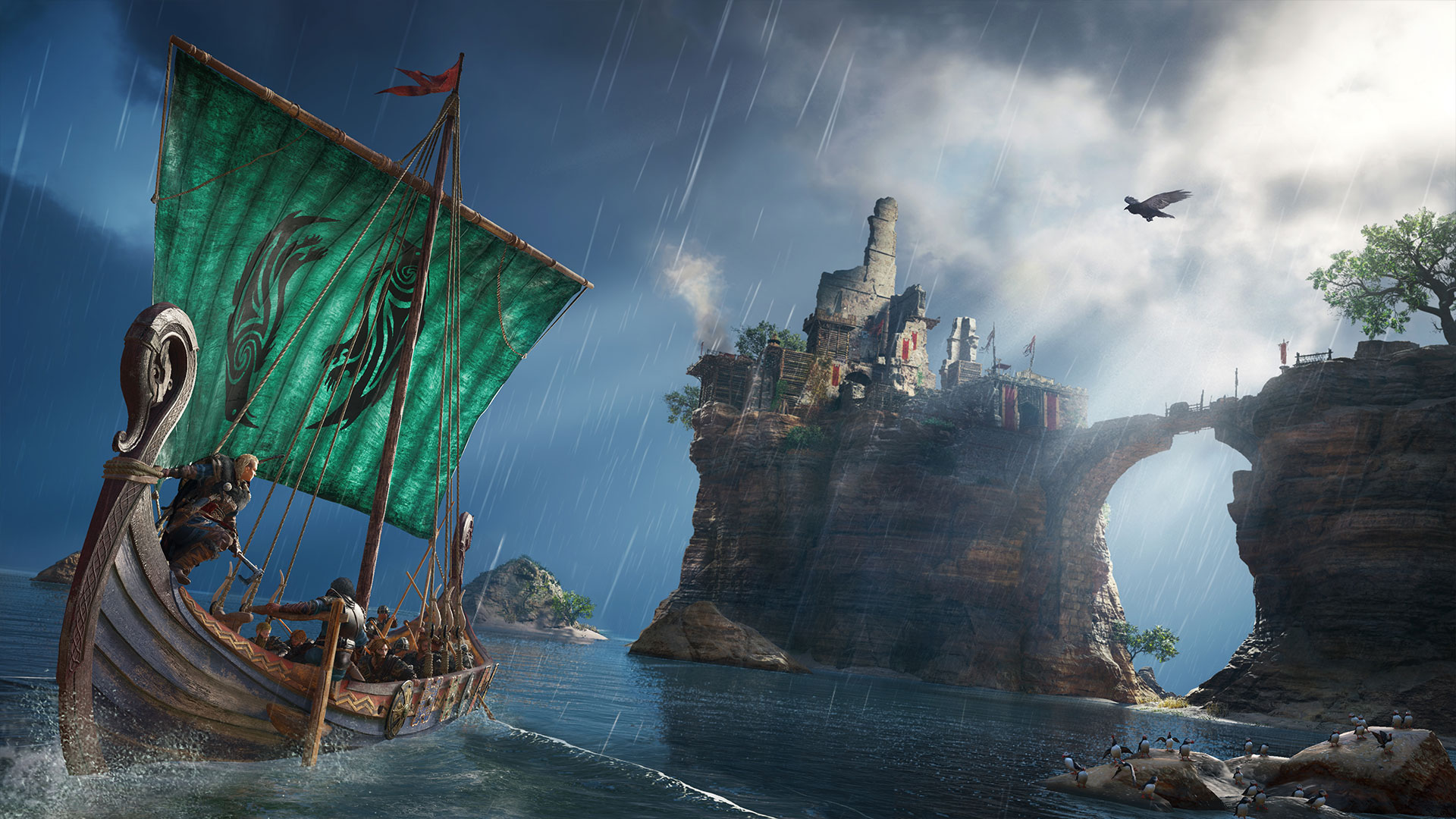
Don't worry, Assassin's Creed Valhalla will let you choose to play as a male or female Viking leader
Our understanding of the era, Noël concedes, is part archaeological and partly drawn from a variety of sources "from all kinds of chronicles and texts". It means that Valhalla's world and politics will be a blend of fact inspired by archaeological findings, folklore that has stood the test of time, and historical record which has been debated for that same stretch of it. "Unfortunately, Vikings left behind very few texts talking about themselves, so that’s why the negative image we have of Vikings was based on the texts of monks and sometimes from victims of Viking invasions; as you can imagine, they had quite a negative perception. We also had the Viking sagas and myths, which were passed down through oral traditions for centuries and eventually written down to help inform the world," Noël says, adding, "In later centuries, when countries like England examined their own history, it was important for them to imagine a brutal enemy to help explain how Nations were born by repelling foreign threats."
It'd recommend you read that full interview with Thierry Noël if you have the time because it's an insightful examination of the line Ubisoft is walking. The studio is extrapolating as much as possible from what it can find, using it to inform each new system and mechanic making its way to Assassin's Creed Valhalla. If you've ever felt that the periods of history that Assassin's Creed plays in is a little divorced from the gameplay it presents, then it certainly sounds like Ubisoft Montreal is attempting to address that here.

Ubisoft's latest will launch on PC, PS4, Xbox One, Google Stadia, PS5, and Xbox Series X; the Assassin's Creed Valhalla release date is set for later this year. If you're interested, here's how to pre-order Assassin's Creed Valhalla ahead of time.

Josh West is the Editor-in-Chief of GamesRadar+. He has over 15 years experience in online and print journalism, and holds a BA (Hons) in Journalism and Feature Writing. Prior to starting his current position, Josh has served as GR+'s Features Editor and Deputy Editor of games™ magazine, and has freelanced for numerous publications including 3D Artist, Edge magazine, iCreate, Metal Hammer, Play, Retro Gamer, and SFX. Additionally, he has appeared on the BBC and ITV to provide expert comment, written for Scholastic books, edited a book for Hachette, and worked as the Assistant Producer of the Future Games Show. In his spare time, Josh likes to play bass guitar and video games. Years ago, he was in a few movies and TV shows that you've definitely seen but will never be able to spot him in.
